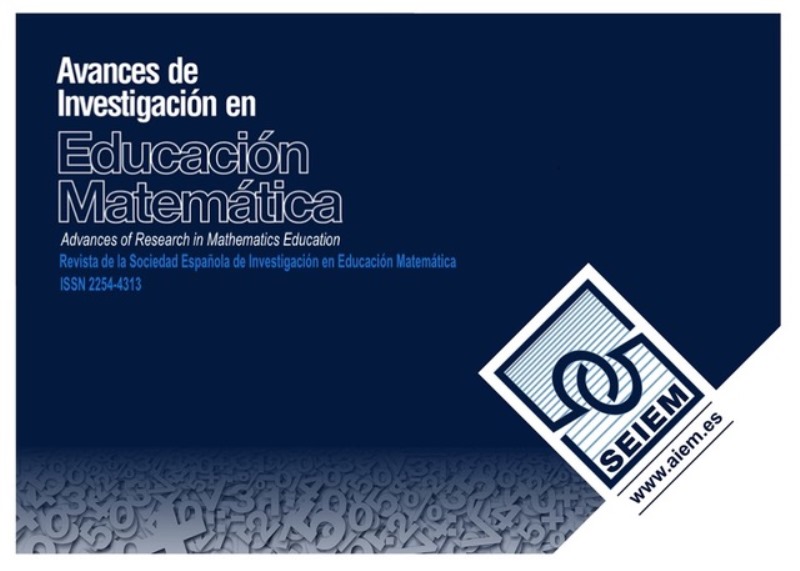Mathematical problems in the case of a curriculum
Analysis based on context and on contextualization
DOI:
https://doi.org/10.35763/aiem.v0i19.359Keywords:
Context and contextualization of mathematical problems, mathematical curriculum, theoretical basis for the curriculum, active and significant contextualizationAbstract
The objective of this study is to analyze the context and contextualization of problems from the case of the Costa Rican curriculum developed in the 2012 reform. The mixed methodology consists of a qualitative content analysis and a subsequent quantitative recount. A system of categories is built from a literature review leading to the study of types of context and types of contextualization. The 59.5% out of the total of 141 problems has a scientific/mathematics context, with contextualization of the active type in only a few of them. Moreover, contexts of the rural and indigenous types are absent. We conclude therefore that some disconnections exist between the theoretical curricular basis and the problems exemplified. Finally, we propose the further discussion of our categories as indicators for the design of mathematical problems with contextualization of the active and significant types.
Downloads
Downloads
Published
How to Cite
Issue
Section
License
The articles published in this journal are under a license Creative Commons: By 4.0 España from number 21 (2022).
Authors who publish with this journal agree to the following terms:
- Authors retain copyright and keep the acknowledgement of authorship.
- The texts published in this journal are – unless indicated otherwise – covered by the Creative Commons Attribution 4.0 international licence. You may copy, distribute, transmit and adapt the work, provided you attribute it (authorship, journal name, publisher) in the manner specified by the author(s) or licensor(s). The full text of the licence can be consulted here: http://creativecommons.org/licenses/by-nc/4.0.
- Authors are able to enter into separate, additional contractual arrangements for the non-exclusive distribution of the journal's published version of the work (e.g., post it to an institutional repository or publish it in a book), with an acknowledgement of its initial publication in this journal.
- Authors are permitted and encouraged to post their work online (e.g., in institutional repositories or on their website) prior to and during the submission process, as it can lead to productive exchanges, as well as earlier and greater citation of published work (See The Effect of Open Access).









